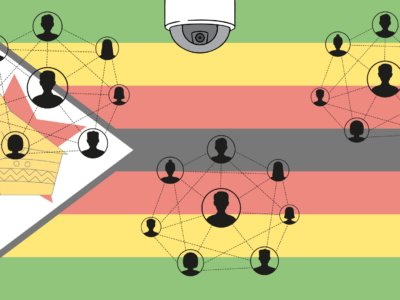Latest posts by Advox
Unfreedom Monitor: Civic Media Observatory findings report
The Unfreedom Monitor is a project to analyse, document, and report on the growing phenomenon of the use of digital communications technology to advance authoritarian practices.
Unfreedom Monitor Report: Access
Advox research into internet access, shutdowns and interruptions is now in a report. Read an excerpt and download the full pdf.
Zimbabwe’s uneven electoral field: Data protection laws used to deny digital voter roll inspection
In April this year, a number of eligible voters received accurately targeted campaign SMS messages from the ruling party, with details such as voters’ full names and where message recipients had registered to vote.
Unfreedom Monitor Report: Hungary
Advox research into digital authoritarianism in Hungary is now in a report. Read an excerpt and download the full pdf.
Unfreedom Monitor Report: Venezuela
Advox research into digital authoritarianism in Venezuela is now in a report. Read an excerpt and download the full pdf.
Unfreedom Monitor Report: Philippines
Advox research into digital authoritarianism in the Philippines is now in a report. Read an excerpt and download the full pdf.
In the Philippines, cyber censorship is a new form of authoritarianism
Qurium’s investigation revealed that the cyber attacks were coming from the Philippine military, using the government infrastructure of the Department of Science and Technology.
Unfreedom Monitor Report: Myanmar
Advox research into digital authoritarianism in Myanmar is now in a report. Read an excerpt and download the full pdf.
The quiet weeding out of Hong Kong’s media landscape
In 20 years, Hong Kong has dropped from 18th to 148th in the World Press Freedom Ranking, which translates into less critical coverage, less investigative reporting, and a less appealing work environment for talented journalists.
Unfreedom Monitor Report: Cameroon
Advox research into digital authoritarianism in Cameroon is now in a report. Read an excerpt and download the full pdf.
LIVE on May 2: How authoritarians target women online
Join us on YouTube Live on May 2 for a discussion of how women journalists are targeted online, and of strategies that can make the internet a safer place.
Unfreedom Monitor Report: Hong Kong
Advox research into digital authoritarianism in Hong Kong is now in a report. Read an excerpt and download the full pdf.
What is red-tagging and why it is dangerous in the Philippines?
With the enactment of the Anti-Terrorism Act in 2020, red-tagged individuals and groups face the risks of being subjected to surveillance, freezing of assets, and restriction of movement, among others.
The normalization of Chinese-style censorship in Hong Kong
While the Hong Kong's National Security Law primarily targeted politicians of the pro-democratic opposition, activists, and critical media outlets, it soon also engulfed Hong Kong’s arts and culture scene.
How internet shutdowns in Myanmar have been endangering lives and affecting humanitarian work since the coup
The internet blackout has made it difficult for locals to both send and receive information on the conditions in the region, report human rights abuses committed by the military regime, or raise funds for humanitarian business.
The Myanmar junta’s war against Facebook
Social media platforms have an oversized influence on political events such as elections, and they have a responsibility to advance democracy.
Online gender-based violence: A tool of digital authoritarianism in India
Women journalists in India have been trolled, received death and rape threats, found themselves objectified on apps, and are allegedly targeted by spyware like Pegasus.
How military supporters are using Telegram channels to suppress dissent in Myanmar
Pro-military people are urging the military authorities to take action against those who are pro-democracy, calling for detention, imprisonment, property seizure, revoking citizenship and travel documents — even the execution of political prisoners and rebels.
Saudi Arabia: Call for release of two Saudi Wikipedians
A request for the release of doctors Osama Khalid and Ziad Al-Sufyani, who contributed to Wikipedia Arabic and were jailed in Saudi Arabia for 32 and 8 years, respectively.
How Zimbabwe is building a Big Brother surveillance state
Citizens' belief that the infringement of human and digital rights does not concern them has created fertile ground for the emergence of pervasive surveillance in Zimbabwe.
New stringent legislation threatens data privacy and surveillance protection in Tanzania
A lack of data protection and privacy legislation leaves room for abuse in Tanzania.






















